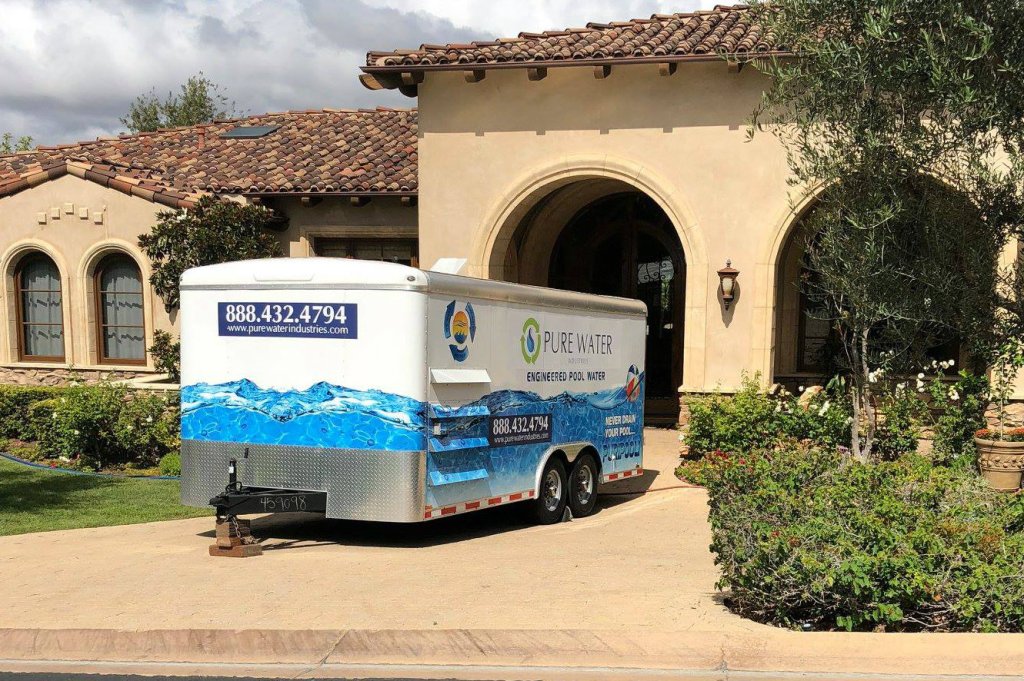Mobile water-purification units are catching on, but maybe not as fast as developers of the technology would like.
They’re facing some headwinds. Despite being on the market for years, the industry remains curious, but cautious. Financing remains a hurdle — units can cost upwards of $100,000 — and the makers of these machines say they’re not getting the support from local water districts that they’d like, despite their promise to save millions of gallons from going down the drain.
San Diego-based Pure Water Industries is celebrating 10 years in business. The firm has built 30 mobile filtration units and has buyers operating in four states. They had high hopes that California’s severe drought, from which the Golden State recently emerged, would have swayed policymakers to somehow endorse the process, thus spurring more investment by the industry. But that has yet to be seen.
“We get very little support from anybody,” said Bruce Wettstein, president.
That’s been Rick Lathrop’s experience, too. He’s the owner of Pool Water Purification Process in Lake Havasu, Ariz. Despite his product being vetted and approved by engineering professors at Arizona State University, policymakers have been standoffish even as the state grapples with preserving local water resources.
He’s been making the argument that purifying pool water is the wisest way to conserve. In parts of the state, backyard pools evaporate 1.5 times a year, leaving loads of calcium, total dissolved solids, minerals and other impurities. To remedy this, homeowners drain at least once a year.
“This water is gone, and it’s gone for a long time for human use; farming, irrigation, ranching — it’s gone,” Lathrop said. “You drain it, and then you have to go through another 20,000 gallons. I’m saying let’s not drain it and save 90%.”
He says he’s making some progress in generating public interest. Lathrop’s technology will be featured in a video being produced by local municipalities to encourage homeowners to save water.
Lathrop has so far sold nine trailers with operators in Arizona, California and Hawaii. He’ll have another operator in Texas in the coming months.
While sales of the units aren’t brisk, those who own the machines remain busy. For his part, Wettstein is operating his own purification system six days a week — up from three to four days a week last year — serving clients such as the YMCA.
Meanwhile, they’re developing the technology further with the goal of producing larger membrane filtration systems that process more water faster, and in the case of Pure Water Industries, stationary units. The company is three years into a five-year pilot program with the Marriott, collecting data on an in-line system.
“That has been performing extremely well for them,” Wettstein said.
